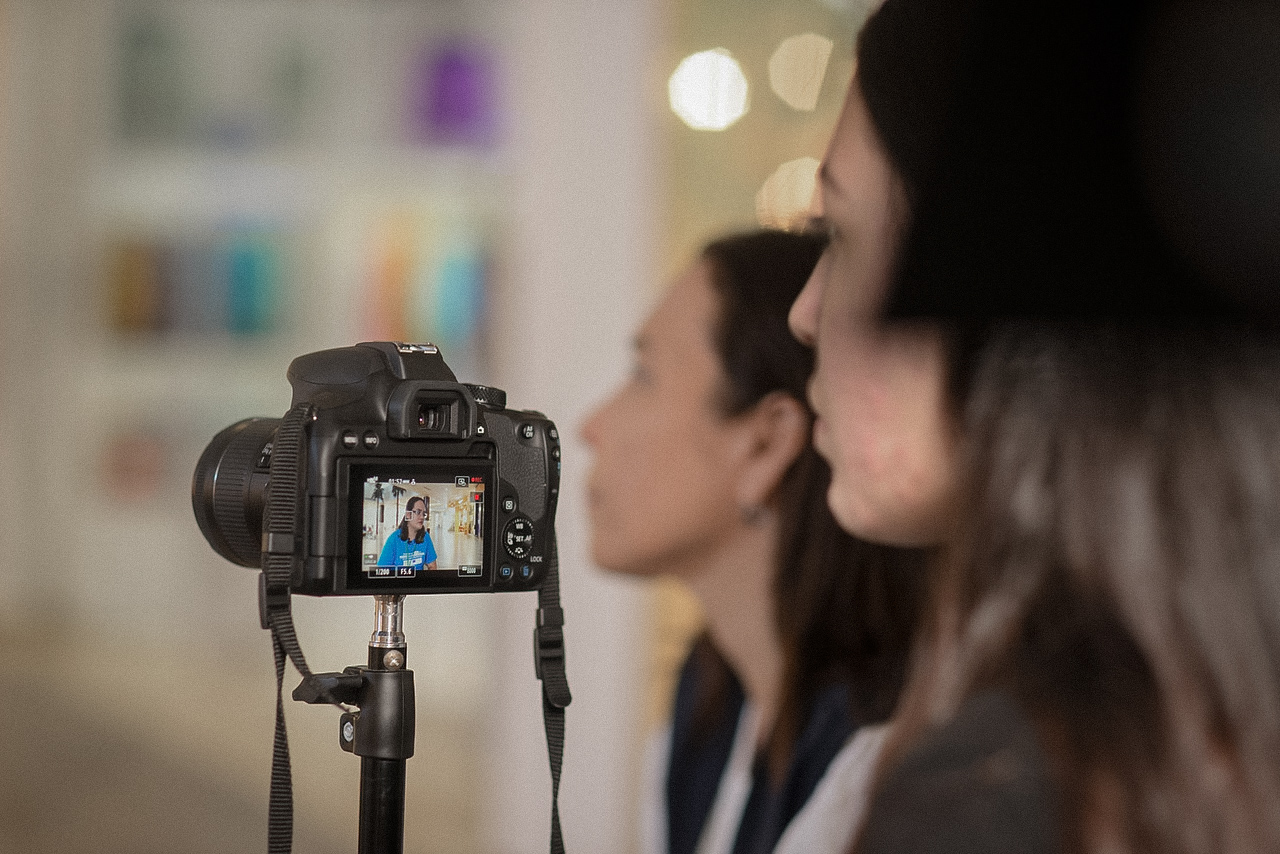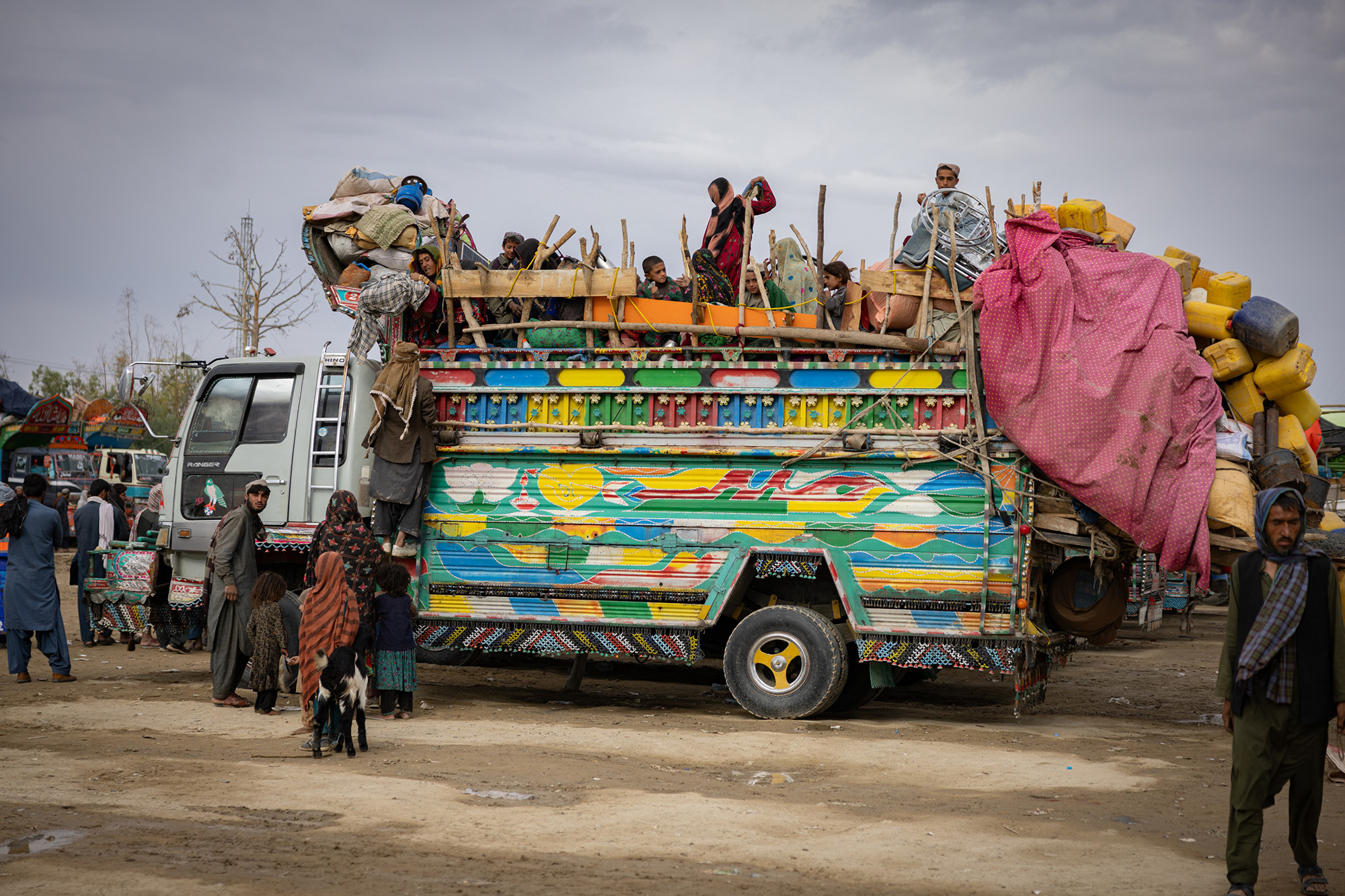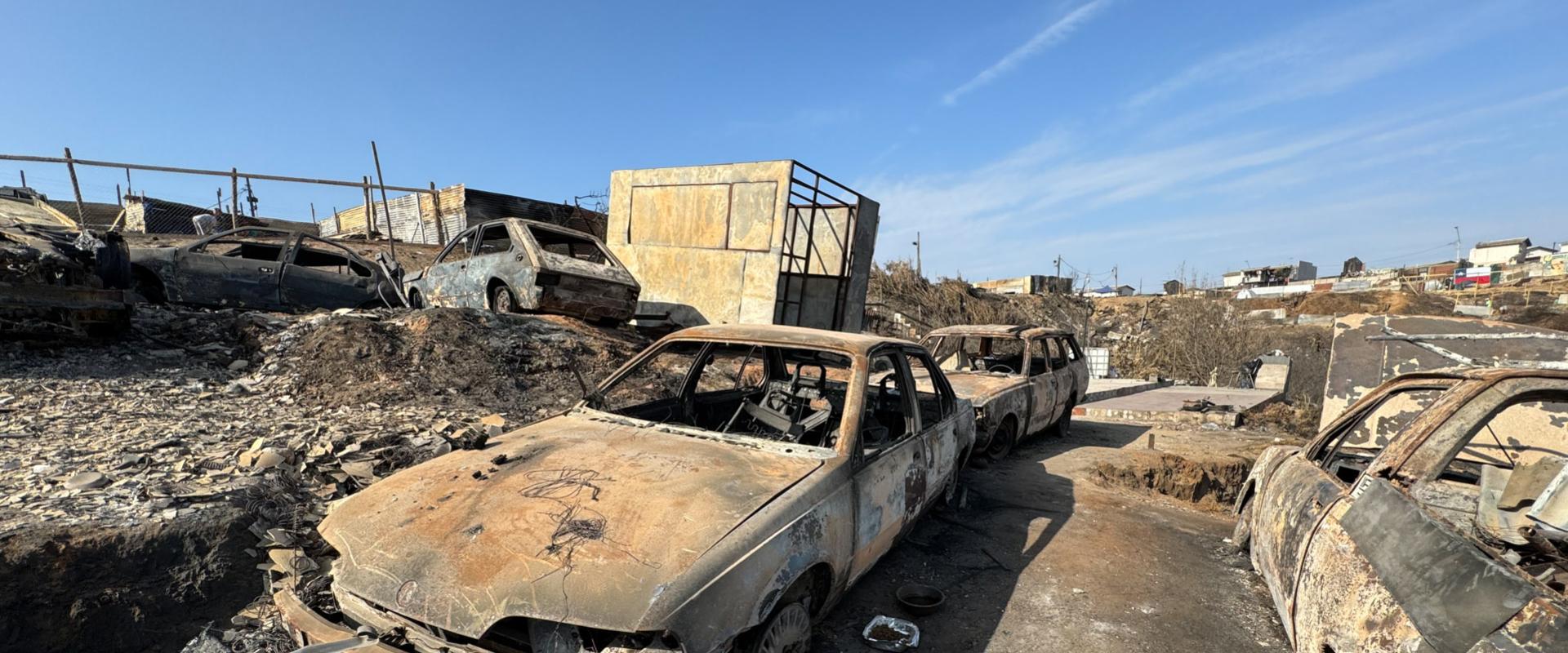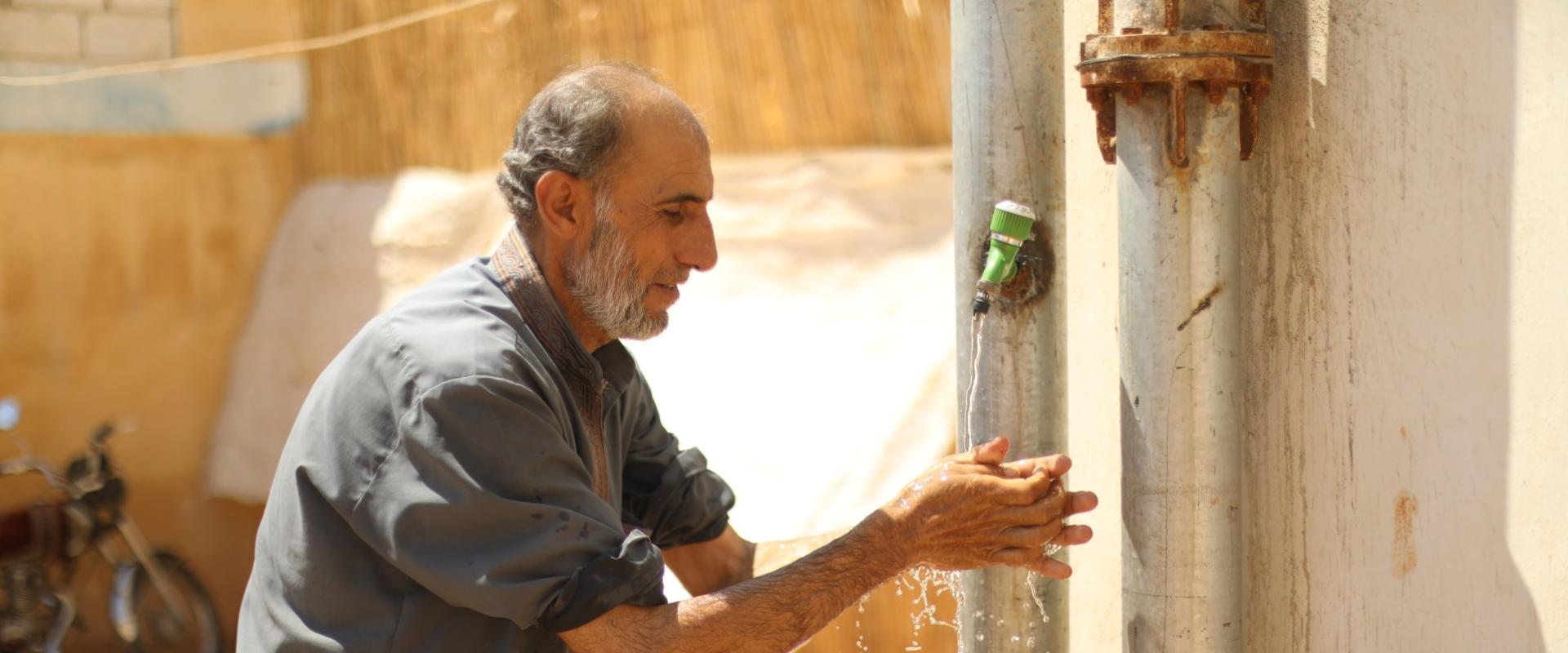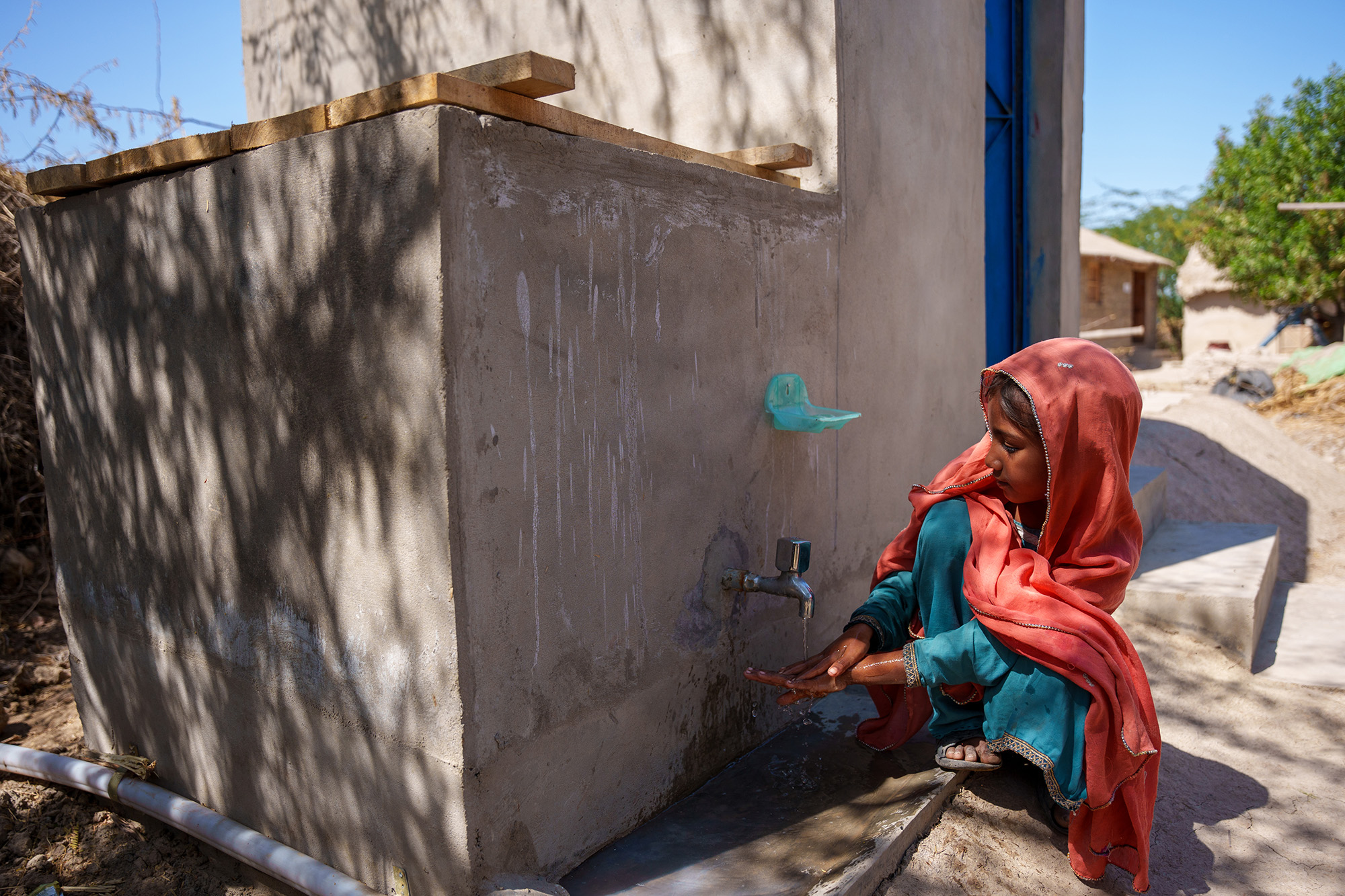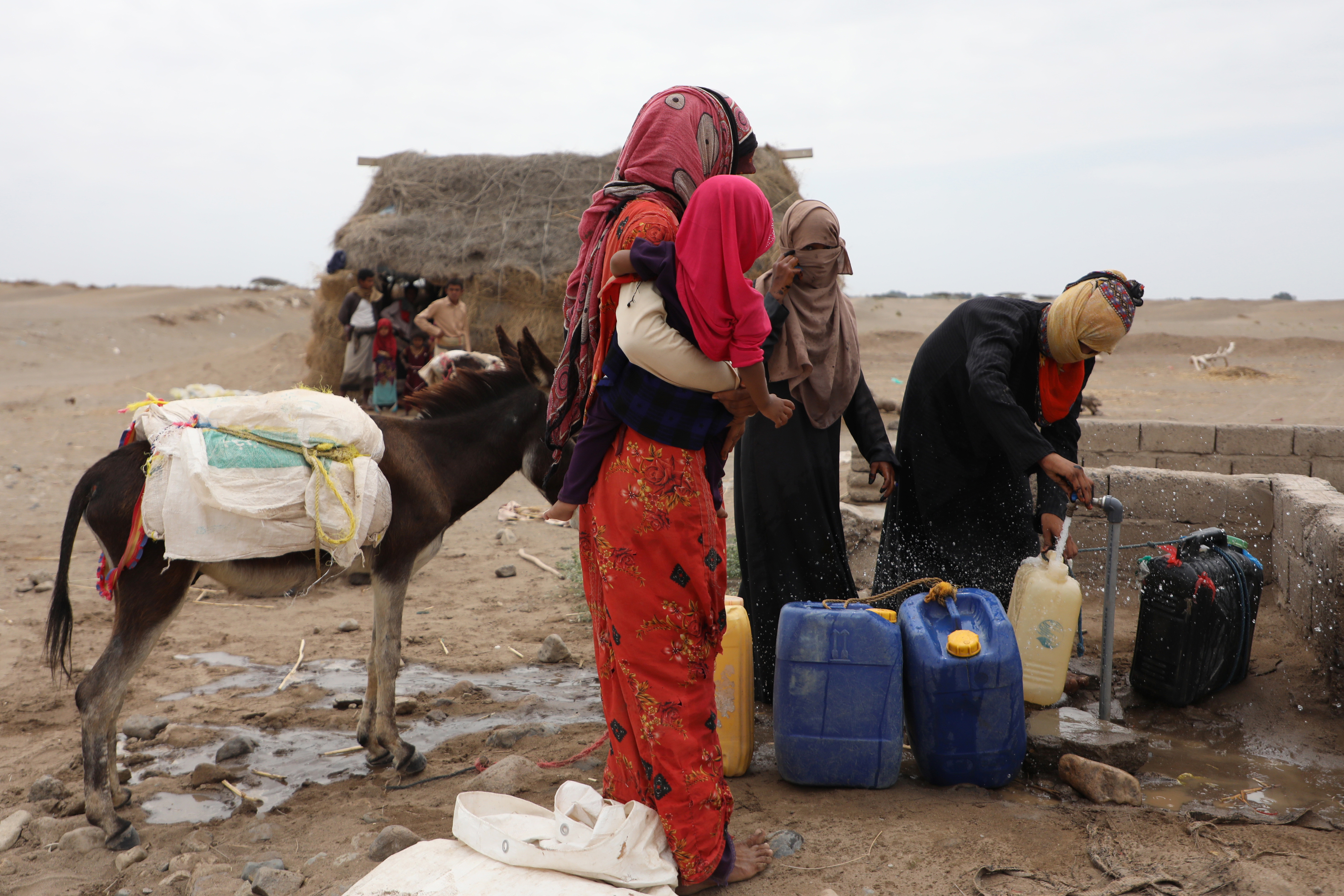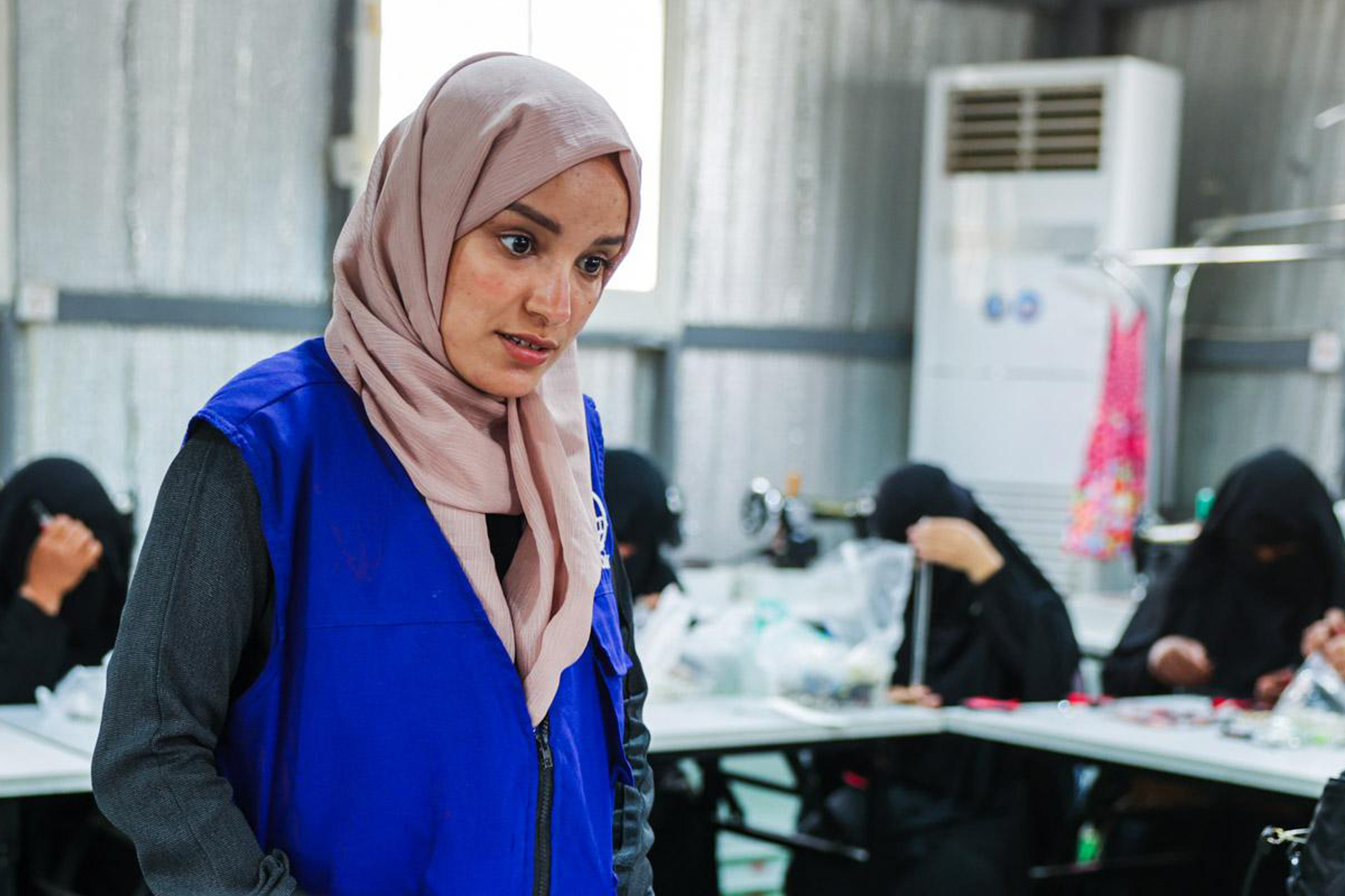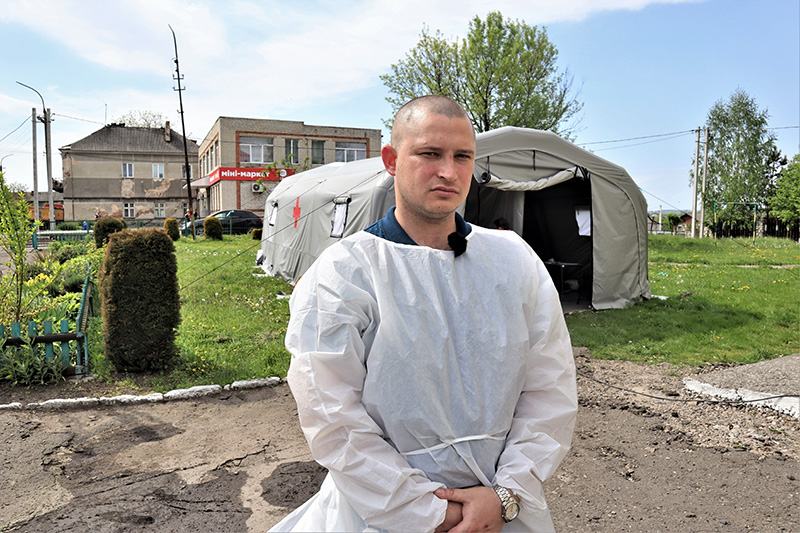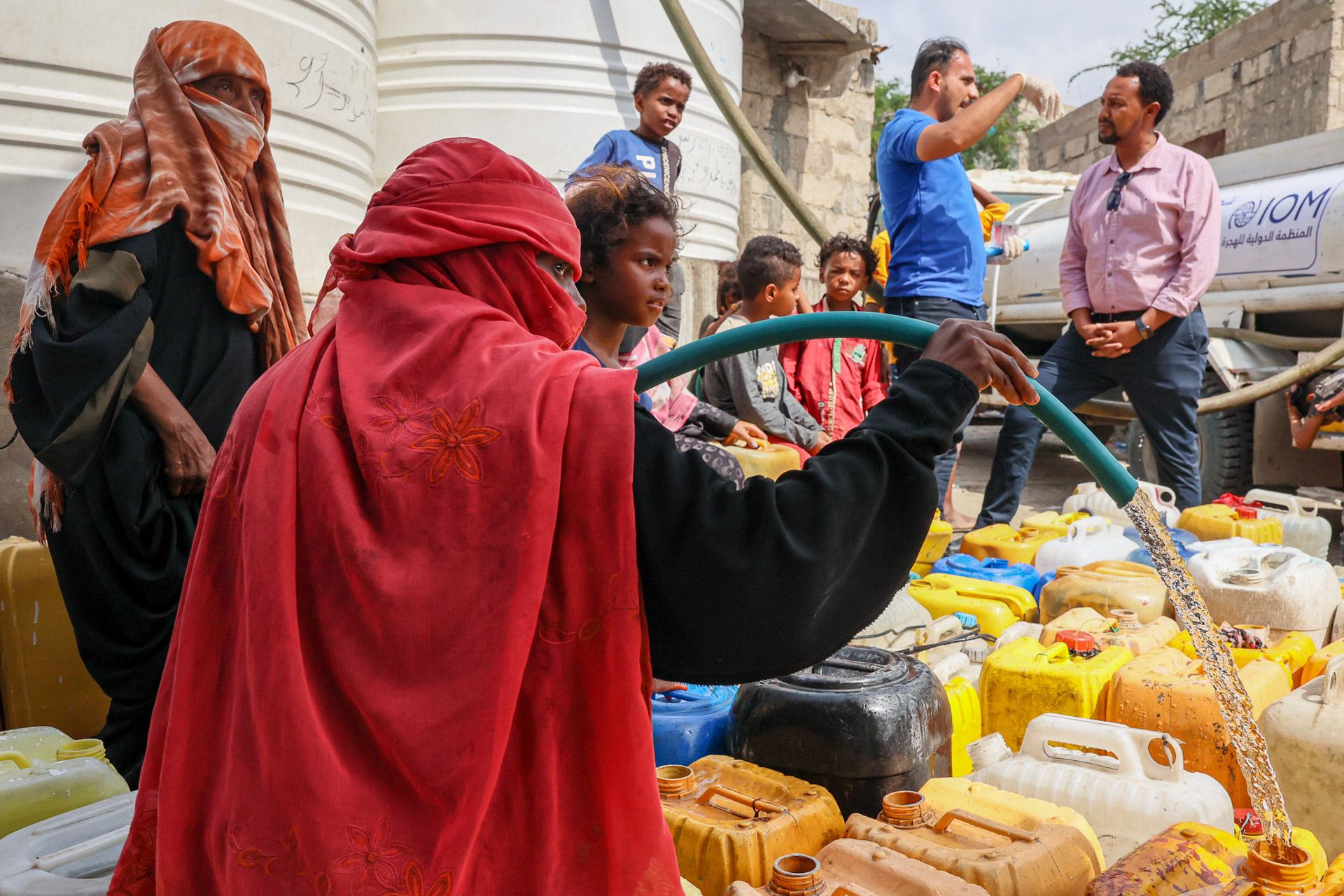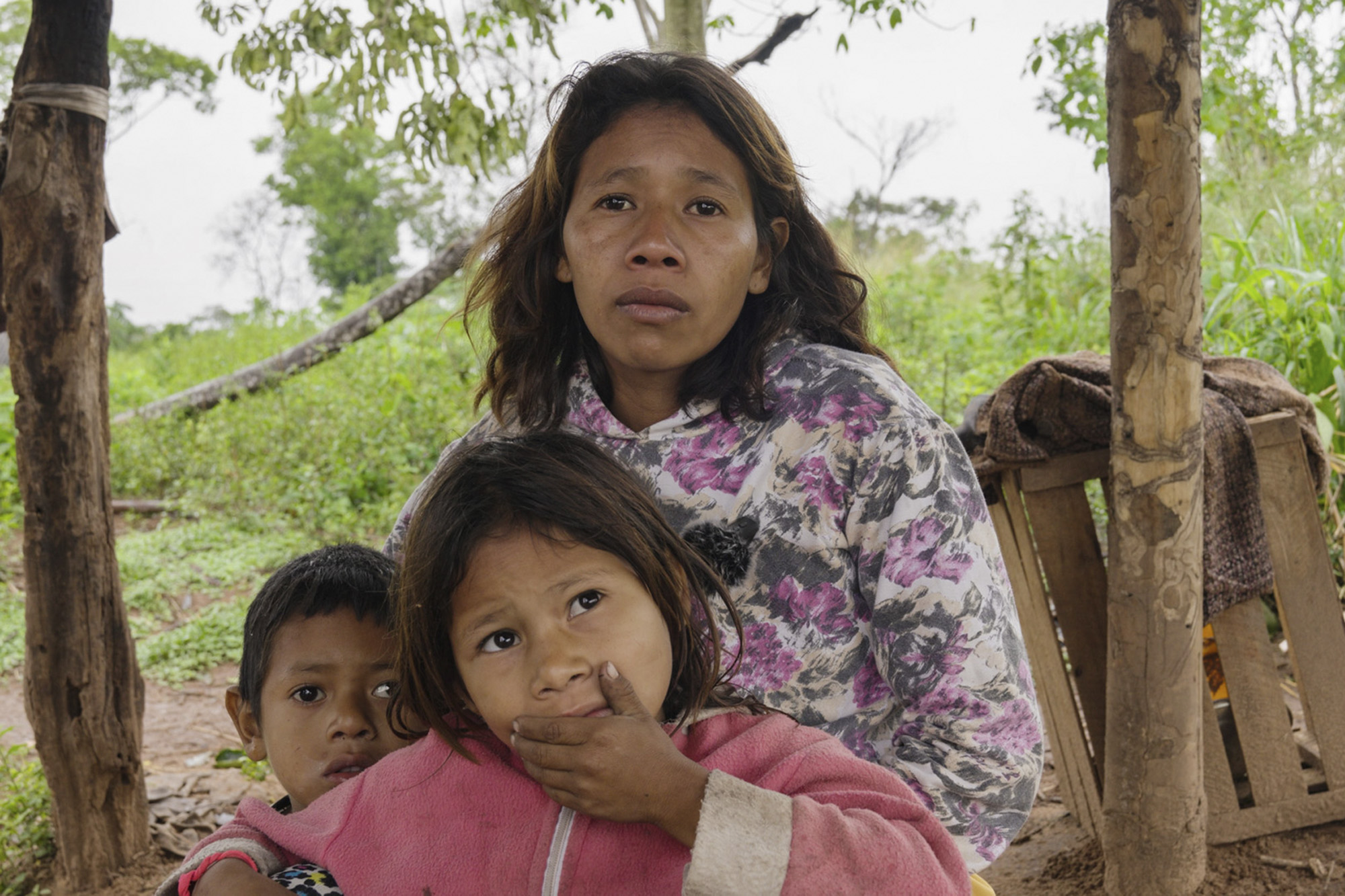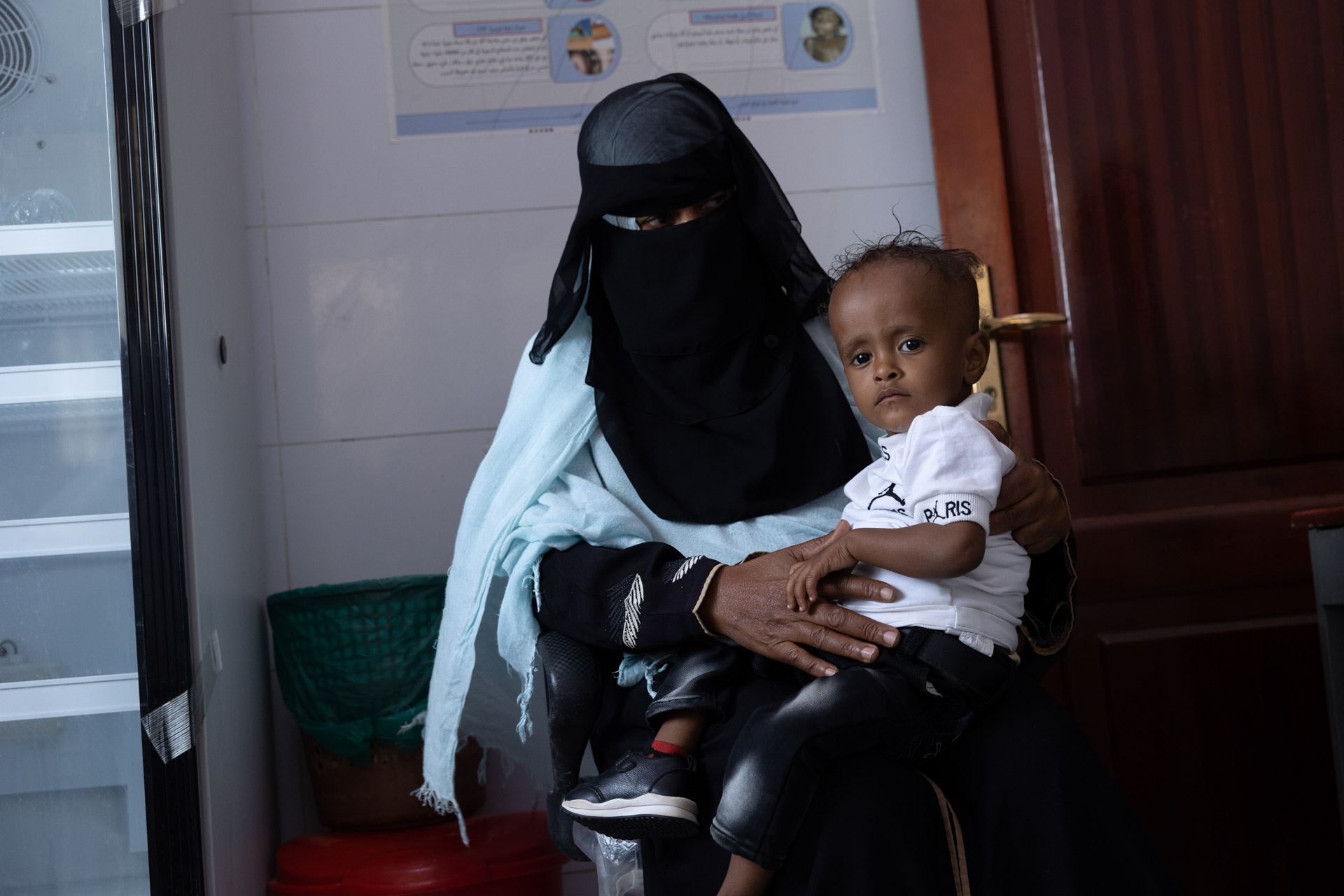Globalizate Radio serves as a crucial lifeline for Venezuelan migrants in the Dominican Republic, offering essential information, community support, and a platform to challenge stereotypes and promote unity.
IOM
As of 20 April 2024, the International Organization for Migration (IOM) and the UN Refugee Agency (UNHCR) in Pakistan estimate that over 550,000 Afghans returned to Afghanistan under coercive conditions since last September. Over 31,000 Afghans were detained in Pakistan during the same period. Afghanistan will struggle to absorb the high number of returnees. IOM provides legal aid to displaced Afghans while leading a border consortium of humanitarian partners. The Organization calls for countries to halt forced returns until safe, dignified, and voluntary returns are ensured.
A group of 30 Venezuelan migrants traveled 120 kilometers m from Chile's capital, Santiago to El Olivar, a neighborhood consumed by the flames on the outskirts of Viña del Mar, to help those who lost everything in a disastrous forest fire. They brought food, water, products for newborns, and personal hygiene supplies. They mobilized professionals like doctors, social workers, and psychologists to assist the affected. Raúl Semprún, a Venezuelan journalist, and founder of Crónicas de Chile organized the operation as a way to give back to the country that welcomed them as a second home.
Over the past 13 years, conflict has ravaged Northwest Syria, leaving scars on both the land and its people. In February 2023, after earthquakes dealt a further blow, crippling vital water infrastructure, residents of camps in the northwest faced prolonged water shortages due to damage sustained by a crucial elevated water tank. However, the International Organization for Migration (IOM) managed to reconstruct three elevated water tanks, restoring access to safe and clean water for over 67,500 earthquake-affected communities.
Musa and his family are forced to migrate due to climate change-induced drought, highlighting the urgent need for global climate action.
Women and girls were disproportionately affected by the devastating floods that hit Pakistan in 2022. Nisha, a seven-year-old girl from the Mirpurkhas District of Sindh, had to endure months of displacement and walk several miles every day to access clean water after her home and latrines were destroyed. Sampa, a 55-year-old widow, fell ill after drinking contaminated water during the floods. With the responsibility of caring for her ten-year-old child, she struggled to fetch water daily in the scorching heat. The efforts by the International Organization for Migration (IOM) to construct latrines, handwashing stations, and lead-line hand pumps in Nisha and Sampa's villages brought relief and improved access to clean water and hygiene services.
Amidst Yemen's conflict, community-led water projects are revitalizing communities and providing essential access to clean water, transforming lives and easing burdens for millions.
Tahani lived in a small village in Yemen and believed her role was limited to managing the household. After marrying, she left her village due to the country's decade-long conflict, and the new couple moved to a displacement site in central Yemen, where she became pregnant, but her daughter died due to lack of medical care. Shatha, who worked for the International Organization for Migration (IOM), met Tahani and encouraged her to join a workshop where she discovered her talent for making accessories. Tahani has built a small business and is now able to earn an income and support her family.
Over the past two decades, protracted conflicts, humanitarian needs, increasing frequency of disease outbreaks and heightened geopolitical tensions have continued to proliferate. Emerging crises add to the complexity of humanitarian needs. The International Organization for Migration (IOM) prioritizes the safety and protection of people in challenging crisis response contexts. The first-ever IOM Global Appeal for 2024 aims to serve almost 140 million people, including internally displaced persons and their host communities. Take a look at the images associated with seven of the world's most challenging crisis contexts.
“Missiles hit the perinatal centre, the maternity ward – everything,” remembers Maksym, a doctor from Mariupol. “They fired directly at the windows: we saw pieces of human bodies flying out.” Immediately after the February 2022 Russian invasion of Ukraine, Maksym began treating patients in the basement of a gymnasium that had been turned into a makeshift hospital catering to the needs of the 4,000 people sheltering there. For them, Maksym was a pediatrician, surgeon, nurse, and psychologist combined in one, working for 14 hours per day or more. Read more about Maksym and others in the war-affected communities that the International Organization for Migration (IOM) is helping.
Kenyan pastrolists in Tana river County in the coastal region, are facing challenges adapting to changing weather and are moving away from their communities to survive.
Think of tomorrow, act today. Climate change is not a problem that can be addressed by one individual or nation, it can be solved if we all work together.
Grappling with water scarcity exacerbated by rough terrain and rapid population growth, residents of Ta'iz , Yemen face immense challenges accessing clean water, a struggle alleviated by the installation of a solar-powered well pump by IOM.
Ilaria is a single mother who lives with her four children and mother in a remote part of the Mbya Guarani indigenous territory in Santa Teresita, Paraguay. She faces the harsh realities of living in a community that is affected by deforestation and climate change, which forces her and other resilient women to leave their communities periodically to feed their families. The story of the Mbya Guarani community of Santa Teresita is similar to many other indigenous communities in South America who are struggling to protect their ancestral cultures and resilience in the face of deforestation and climate change. These communities need support, protection, and the international community's commitment to finding more solutions that allow people to remain in their communities despite their changing environment.
IOM’s newly rehabilitated Wadi Arafat health centre in Ta’iz is serving over 15,000 internally displaced people, after total collapse of Yemen's health infrastructure due to years of conflict.

